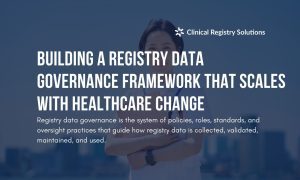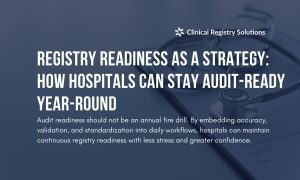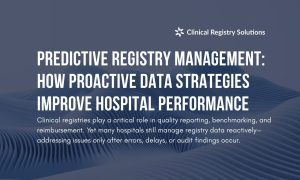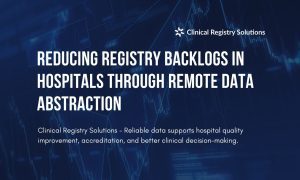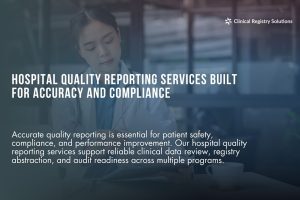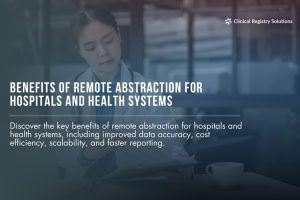In the rapidly evolving field of cardiovascular healthcare, accurate medical data abstraction serves as a foundational element for quality improvement and patient safety. Data abstraction—the process of extracting key patient information from medical records and entering it into cardiac registries—provides vital insights that empower clinicians, administrators, and researchers to monitor treatment effectiveness, track trends, and ultimately enhance patient outcomes.
The Role of Cardiac Registries in Patient Care
Cardiac registries such as the Chest Pain – MI Registry, CathPCI Registry, and STS Adult Cardiac Surgery Database are essential tools for collecting comprehensive patient data, including demographics, symptoms, interventions, and post-procedural outcomes. These registries enable hospitals to benchmark performance, comply with clinical guidelines, and contribute to advances in cardiovascular care.
However, the value of these registries depends heavily on accurate and complete data abstraction. When the information entered reflects the true clinical picture, the registries become powerful instruments for clinical decision-making and quality assurance.
Why Accuracy in Data Abstraction Matters
Hospitals and healthcare providers who submit precise, high-quality data unlock a range of critical benefits:
Better Decision-Making for Clinicians
- Accurate registry data allows physicians to evaluate treatment effectiveness, refine care strategies, and identify areas needing improvement.
- Longitudinal trends from registries help predict risk factors and complications, enabling earlier and more effective interventions.
Enhanced Patient Safety and Outcomes
- Reliable data supports identification and dissemination of best practices in treating heart attacks, heart failure, and other cardiac conditions aligned with ACC/NCDR, STS, VQI, MBSAQIP, NSQIP, and Get With The Guidelines registries.
- Facilities with high-quality data tend to see reductions in hospital readmission rates—a key indicator of quality.
Improved Hospital Performance and Compliance
- Many cardiac registries influence CMS reimbursement programs, making accurate data critical for securing financial incentives.
- Hospitals with robust data can benchmark against peers and gain recognition for cardiovascular care excellence.
Advancing Cardiovascular Research and Innovation
- Real-world data extracted from registries fuels clinical trials and research studies, supporting evidence-based medicine.
- Researchers use registry data to assess long-term effectiveness of devices, medications, and surgical interventions, accelerating innovation.
Challenges in Data Abstraction and How to Overcome Them
Despite its importance, data abstraction faces several hurdles:
- Variability in Documentation
Solution: Standardize abstraction protocols and provide physician documentation training to ensure uniformity and consistency. - High Workload for Abstractors
Solution: Utilize remote, specialized registry abstractors who can maintain accuracy while increasing productivity. - Lack of Continuous Education
Solution: Offer ongoing training programs to keep abstractors updated with evolving registry requirements.
Interested in starting a career in data abstraction? Explore internships at Data Abstractor Academy.
The Future of Cardiac Data Abstraction
Emerging technologies and AI-powered tools are transforming data abstraction by automating large-scale data processing with improved speed and accuracy. These advancements free clinical staff to focus on patient care and complex decision-making. However, expert human abstractors remain essential to ensure clinical context, interpret nuanced information, and maintain data integrity.
Conclusion
Accurate cardiac data abstraction goes far beyond regulatory compliance—it is a vital strategy to improve patient outcomes, hospital performance, and cardiovascular research. By prioritizing precision, investing in ongoing training, and embracing technology, healthcare organizations can maximize the value of cardiac registries and drive meaningful improvements in cardiovascular care.
